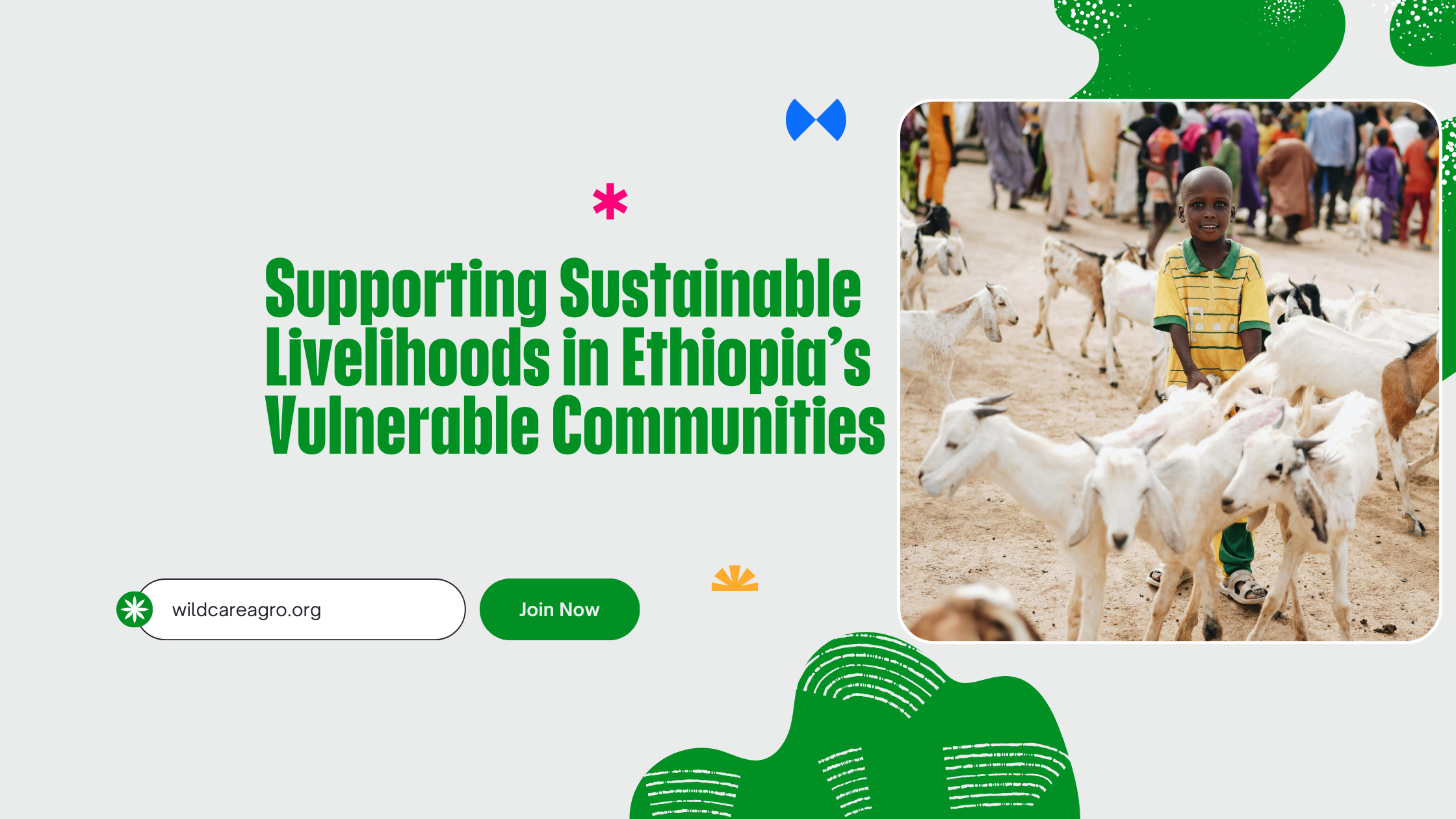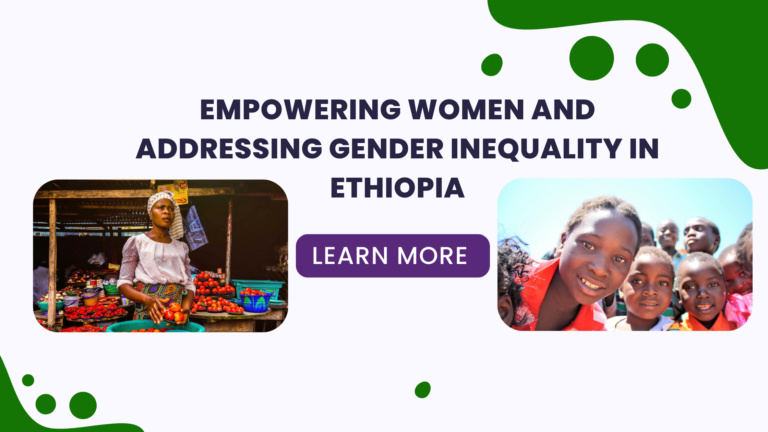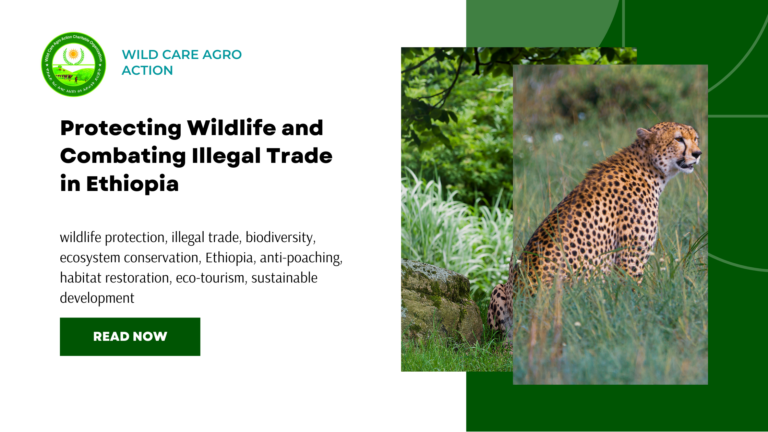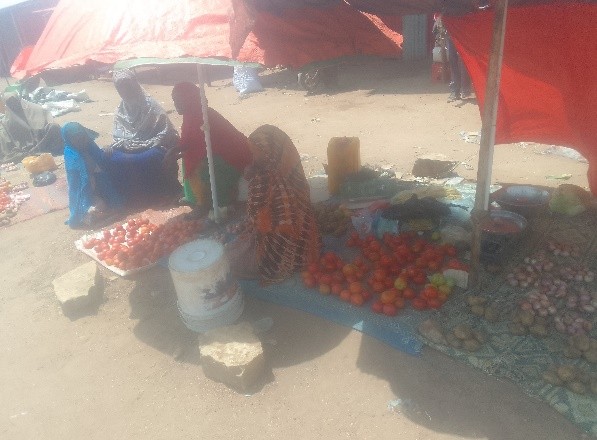Supporting Sustainable Livelihoods in Ethiopia’s Vulnerable Communities

Ethiopia, a country of rich cultural heritage and breathtaking landscapes, is home to a diverse population that includes pastoral and agro-pastoral communities. While these communities have thrived for generations, they now face increasing challenges due to climate change, resource depletion, and socioeconomic difficulties. At WILD CARE AGRO ACTION (WCAA), we are dedicated to supporting these vulnerable populations by promoting sustainable livelihoods, improving food security, and reducing poverty. This article explores our commitment to transforming lives in Ethiopia’s rural communities, fostering long-term growth and self-reliance.
The Challenges Facing Ethiopia’s Pastoral and Agro-Pastoral Communities
A Fragile Environment Under Pressure
Ethiopia’s pastoral and agro-pastoral communities rely heavily on natural resources to sustain their livelihoods. However, increasing environmental pressures, such as droughts, deforestation, and land degradation, are threatening these fragile ecosystems. Climate change has exacerbated these issues, leading to reduced agricultural productivity and a scarcity of water and grazing land.
This environmental degradation not only affects the livelihood of these communities but also poses significant challenges to their food security. With less access to arable land and water resources, many families struggle to grow crops and raise livestock, leaving them vulnerable to hunger and poverty.
Socioeconomic Challenges
In addition to environmental issues, Ethiopia’s rural communities face a range of socioeconomic challenges. Limited access to education, healthcare, and infrastructure, coupled with high unemployment rates, leaves many families trapped in a cycle of poverty. The lack of economic opportunities forces individuals to rely on unsustainable practices, such as overgrazing or deforestation, further worsening the environmental situation.
Gender inequality also plays a significant role in the challenges faced by these communities. Women, who are often the primary caretakers of their families, have limited access to resources and opportunities, making it difficult for them to contribute fully to their household’s economic well-being.
WILD CARE AGRO ACTION’s Mission: Promoting Sustainable Livelihoods
At WILD CARE AGRO ACTION (WCAA), we believe that the key to addressing these challenges lies in promoting sustainable livelihoods. By empowering Ethiopia’s vulnerable pastoral and agro-pastoral communities, we aim to foster resilience, improve food security, and reduce poverty.
Our mission is centered around the following pillars:
Empowering Local Communities through Capacity Building
One of the core elements of our work at WCAA is capacity building. We provide training and resources to local communities, equipping them with the skills and knowledge they need to adapt to changing environmental and socioeconomic conditions. This includes promoting sustainable agricultural practices, such as climate-smart farming techniques, water conservation, and reforestation efforts.
By empowering individuals with the tools to build and maintain sustainable livelihoods, we enable them to become self-reliant and less dependent on external aid. This approach fosters long-term resilience and helps communities withstand the shocks of environmental and economic challenges.
Supporting Women’s Economic Empowerment
At WCAA, we recognize the critical role that women play in Ethiopia’s rural communities. Our programs focus on empowering women by providing them with access to education, training, and economic opportunities. By supporting women’s entrepreneurship and leadership, we help to create a more inclusive and equitable society, where everyone has a chance to thrive.
Women who participate in our programs are better equipped to contribute to their households’ economic well-being, leading to improved food security and reduced poverty. Additionally, when women are empowered, the entire community benefits from increased social cohesion and development.
Promoting Sustainable Agriculture and Livelihood Diversification
Sustainable agriculture is at the heart of WCAA’s efforts to support vulnerable communities in Ethiopia. We work closely with farmers and herders to introduce environmentally friendly agricultural practices that enhance productivity while preserving natural resources. This includes promoting the use of drought-resistant crops, organic farming methods, and improved livestock management techniques.
In addition to improving agricultural practices, we also encourage livelihood diversification. By promoting alternative income-generating activities, such as beekeeping, handicrafts, and eco-tourism, we help families reduce their reliance on traditional farming and herding, which can be vulnerable to environmental shocks.
Improving Food Security
Food security is a major concern for Ethiopia’s rural communities. At WCAA, we address this issue by supporting sustainable agricultural production and improving access to nutritious food. Our initiatives focus on enhancing crop yields, promoting kitchen gardens, and ensuring that communities have access to diverse and balanced diets.
Through our efforts, we aim to reduce hunger and malnutrition, especially among children and vulnerable populations. By improving food security, we help to build stronger, healthier communities that are better able to withstand the challenges of poverty and environmental change.
Achieving Poverty Reduction through Sustainable Livelihoods
Breaking the Cycle of Poverty
At WCAA, we believe that poverty reduction goes hand in hand with sustainable livelihoods. By providing communities with the tools and resources they need to build resilient and diversified livelihoods, we help to break the cycle of poverty. Our holistic approach addresses the root causes of poverty, such as lack of access to education, healthcare, and economic opportunities, while promoting long-term solutions.
Building Resilience to Environmental and Economic Shocks
One of the key benefits of promoting sustainable livelihoods is that it helps communities build resilience to both environmental and economic shocks. By reducing their dependence on unsustainable practices, such as overgrazing or deforestation, communities are better equipped to adapt to changing environmental conditions.
Furthermore, by diversifying income sources, families are less vulnerable to economic downturns or crop failures. This resilience is crucial in ensuring that communities can continue to thrive, even in the face of challenges.
The Future: Creating a Brighter Future for All
At WCAA, we are committed to creating a brighter future for Ethiopia’s pastoral and agro-pastoral communities. By promoting sustainable livelihoods, improving food security, and reducing poverty, we are helping to transform lives and foster long-term growth and self-reliance.
However, our work is far from over. The challenges facing these communities are complex and require continued effort and collaboration. We invite you to join us in our mission to support Ethiopia’s vulnerable populations and create a more sustainable, equitable future for all.
How You Can Get Involved
WCAA’s mission is driven by the belief that everyone has a role to play in supporting sustainable development. Whether you’re an individual, organization, or business, there are many ways you can get involved and make a difference.
- Donate: Your financial support can help us expand our programs and reach more communities in need.
- Volunteer: Share your skills and expertise by volunteering with us, either in Ethiopia or remotely.
- Raise Awareness: Help spread the word about our mission by sharing our content on social media, attending events, or organizing fundraisers.
Together, we can make a lasting impact and support Ethiopia’s vulnerable communities in building a brighter, more sustainable future.



